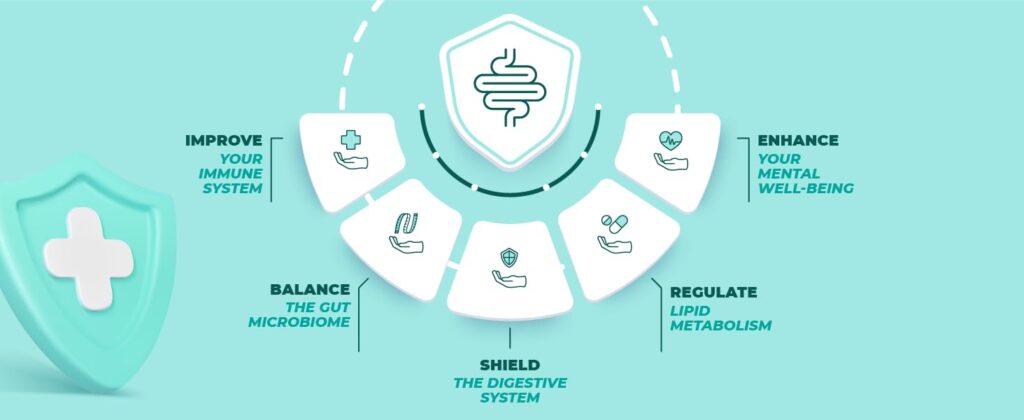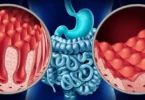When it comes to Irritable Bowel Syndrome (IBS), most people think about food triggers like dairy, gluten, or high-FODMAP ingredients. But what if the real culprit isn’t even a food—what if it’s something as small as your morning coffee or that cigarette break?
If you’re struggling with unpredictable IBS flare-ups, but haven’t looked into your caffeine or nicotine intake, you might be overlooking a powerful piece of the puzzle.
Let’s break down how these two common substances—often dismissed as harmless daily habits—can be quietly sabotaging your gut.

How Caffeine Affects IBS
Caffeine is a stimulant found in coffee, energy drinks, soda, chocolate, and even some over-the-counter medications. While it’s beloved for its energy-boosting properties, caffeine can have a major impact on the digestive tract, especially if you have IBS.
1. Stimulates the Gastrointestinal Tract
Caffeine increases intestinal motility, which means it causes the muscles in your colon to contract faster. For people with IBS-D (diarrhea-predominant IBS), this can worsen symptoms and cause urgent bowel movements.
2. Triggers Stomach Acid Production
Caffeine also stimulates acid production in the stomach, potentially leading to heartburn, reflux, or nausea—especially common in IBS sufferers who already have upper GI symptoms.
3. Enhances Stress Response
Caffeine can elevate cortisol and adrenaline, which mimic a stress response. Since stress is a known IBS trigger, adding caffeine to an already anxious system can tip you over the edge into a full-blown flare.
What About Decaf?
Decaffeinated coffee still contains trace amounts of caffeine and acids that may irritate the gut. For some, even decaf can cause discomfort, especially when consumed on an empty stomach or multiple times a day.
Nicotine and Your Gut: More Harm Than You Think
Nicotine is found in cigarettes, vapes, nicotine gum, and patches. While its addictive nature is well known, its effect on the gut is often underestimated—particularly when it comes to IBS.
1. Disrupts Gut Motility
Nicotine can act as both a stimulant and a relaxant in the digestive tract. It may increase bowel movements in some people, worsening IBS-D, while slowing digestion in others, worsening IBS-C.
2. Alters Gut Microbiome
Smoking has been shown to negatively impact the gut microbiota, contributing to inflammation and imbalance—two factors heavily involved in IBS.
3. Increases Anxiety and Stress
While nicotine can create a sense of immediate calm, it ultimately increases the stress burden on the body, which is a key trigger for IBS symptoms.
Combining Caffeine and Nicotine: A Perfect Storm
Many people unknowingly combine both caffeine and nicotine—a morning cigarette with a cup of coffee, or a midday vape with an energy drink. For someone with IBS, this combo can be like pouring fuel on the fire.
Even if these habits have been part of your life for years, your gut may no longer tolerate them the way it used to. Your IBS symptoms might be your body’s way of sounding the alarm.
What You Can Do Instead
If you suspect caffeine or nicotine is making your IBS worse, here are a few steps to try:
✅ Track your intake: Keep a food and lifestyle journal to identify patterns between your symptoms and stimulant use.
✅ Slowly reduce consumption: Don’t quit cold turkey—especially with caffeine or nicotine, as withdrawal can cause anxiety and headaches. Taper down gradually.
✅ Substitute with calming alternatives: Try herbal teas like peppermint or chamomile for a soothing drink. Practice deep breathing or gentle exercise instead of smoking during stress.
✅ Support your gut: Consider adding a probiotic specifically designed to support digestive health, like a spore-based formula.
Need Help Finding the Right Support?
If you’re working to manage your IBS symptoms and suspect that stimulants like caffeine or nicotine are playing a role, don’t try to figure it out alone.
At the DOCTOR SHARE.NET, we’ve worked with thousands of patients across the U.S. and internationally who felt stuck—until they uncovered the missing link in their daily habits.

One tool we often recommend to help rebalance the gut during this transition is GutShield – Liquid Spore Probiotic. Unlike traditional probiotics that often die before they reach your intestines, GutShield’s spore-based strains survive the digestive process and work deep in the gut to restore balance—especially useful when weaning off irritating substances like caffeine or nicotine.
Final Thoughts
Don’t underestimate the power of “small” daily habits. What feels like a simple cup of coffee or a puff from a vape could be the very thing standing between you and calmer digestion.
If you’re ready to feel better and uncover your personal IBS triggers, we’re here to help. Your gut deserves peace—and so do you.







